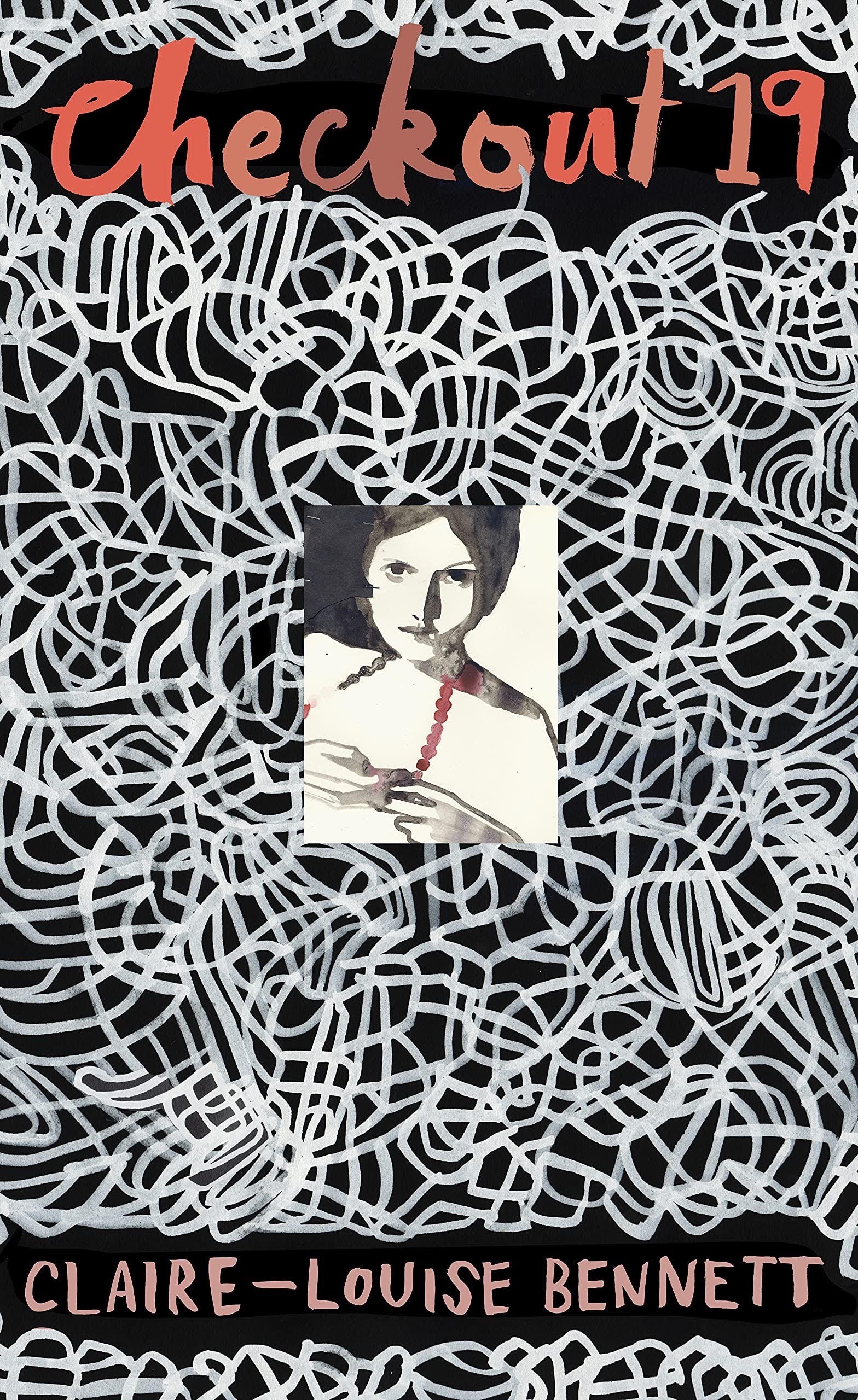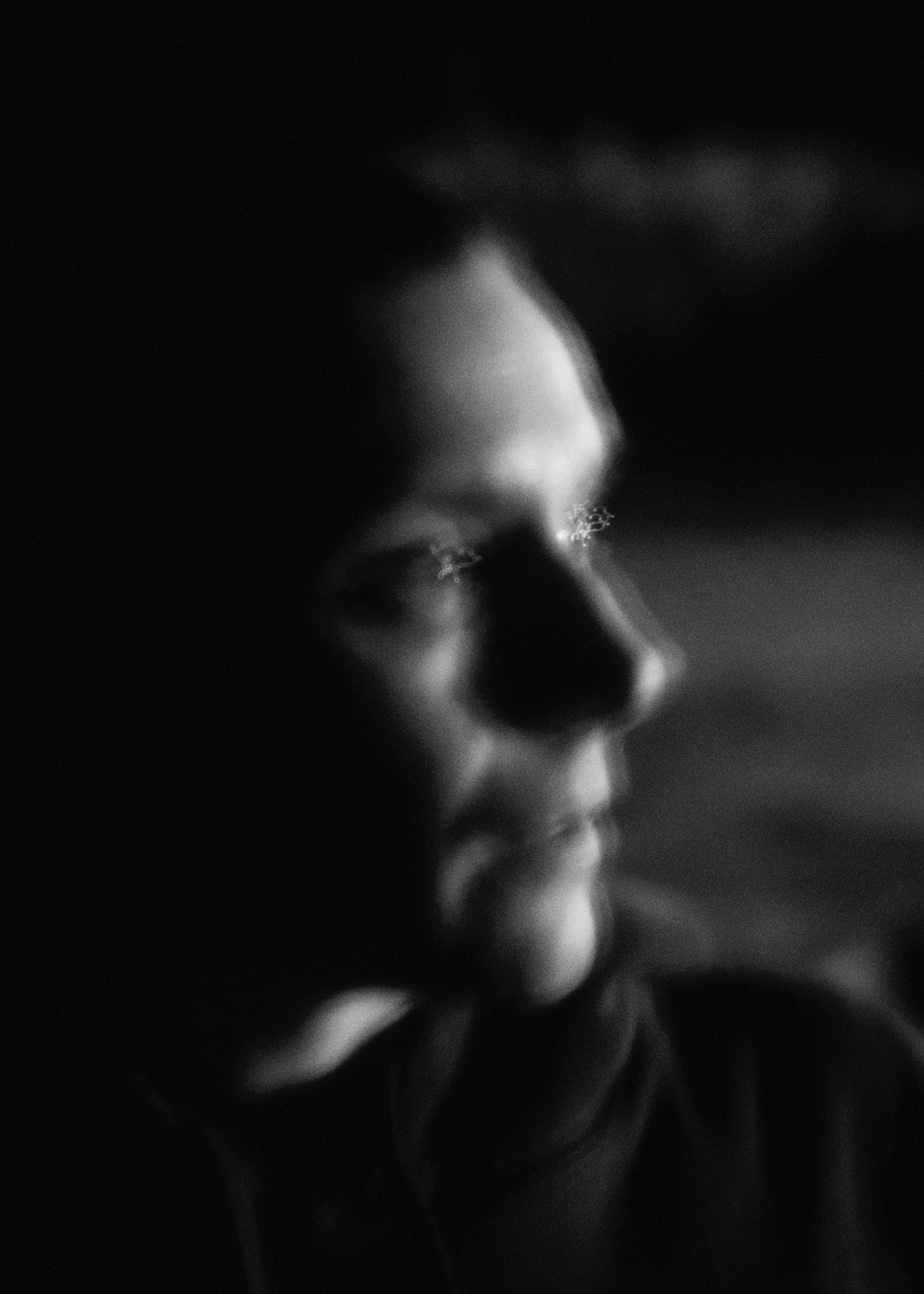Claire-Louise Bennett’s first novel, Pond, was met with critical acclaim when it was published in 2015. Its striking form defied definition: Was it a collection of essays or short stories? Poetry or prose? Fact or fiction? Her new novel, Checkout 19, continues this unusual style, breaking with traditional literary conventions in order to represent what Bennett describes as “the unevenness” of life.
In Checkout 19, a woman revisits the experiences that shaped her and the books that moved her in her youth. These recollections take us from the “fastest growing town in Europe” to the hot streets of Tangier, from the aisles of an English supermarket to the shelves of a byzantine library in a Calvino-esque fable set in Venice.
Speaking with Bennett feels something like reading her work. Punctuated with laughter, conversation sprawls and then retreats, digresses and meanders. A question about books and womanhood leads her to tell me about when Jean Rhys was presumed dead, when she had – in fact – simply moved to a cottage in Devon. “Christ almighty,” Bennett exclaims, “imagine being marginalised to the extent that people don’t think you’re alive anymore.” It’s a tangent that simultaneously moves us away from, and towards, the heart of Bennett’s answer – that writing about female experience is vital and historically undervalued.
From her home in Galway, Bennett spoke to us about revisiting England in her writing, the importance of exploring and elevating female experience on a sentence level and why we need new narrative forms. (I said the old ways weren’t capable of telling new stories, Bennett says they never could).
Rosie Flanagan: You’ve lived in Galway for 20 years now, how did revisiting England through writing Checkout 19 make you feel?
Claire-Louise Bennett: It made me reflect on earlier experiences and formative experiences; I was thinking about when I first started writing, and I was thinking about school days, that period of time when you’re making that shift from being a child, and you’re starting to understand the adult world and the demands that are going to be made upon you, and the terror, I suppose, of realising that you are going to have to one day, quite soon, support yourself. That’s quite scary, really, that idea that you won’t have that protection anymore, and that you have to earn a living – and I really didn’t like working.
And then discovering a kind of talent that you have, something that you really enjoy and can dedicate yourself to, such as writing. But writing isn’t a very lucrative vocation, so it’s not something that’s really recognised and encouraged. So then you’ve got a bit of a dichotomy going on. And that was fundamental for quite a long time, that sense of having something inside that was at odds with external pressures and expectations.
I was reflecting on that, and then more broadly on a particular time in England. I think I felt sort of sad, really, because things there seem to have got worse in terms of social mobility and opportunities. I think I was probably one of the last years to receive free education; I went to university and my fees were paid for. I don’t think that’s been available for quite some time now.
So it seems to have moved in a more restricted, more limited direction for a lot of people. So that makes me sad really, and disappointed.
So I don’t feel nostalgia or a yearning or longing, because from a distance you can sort of see what’s going on. The working class is still not really being heard or represented, and Brexit was just a manipulation and distortion of that dissatisfaction. The conservatives have been in now for ages and it just, I don’t know, it doesn’t seem like anything ever really changes.
“In terms of dispensing with orthodox narrative devices and stuff, I’m not doing it for the sake of it, it’s just that they just don’t reflect how I see life or experience life” – Claire-Louise Bennett
RF: Checkout 19 is a formally interesting novel, the tone and timbre shift constantly, there are digressions, repetitions, and fantastic interludes – it seems you’ve dispensed with traditional narrative structures.
CLB: In terms of dispensing with orthodox narrative devices and stuff, I’m not doing it for the sake of it, it’s just that they just don’t reflect how I see life or experience life. And I’m certainly not the first writer to feel that frustration and dissatisfaction. I mean, even novelists who are considered conventional, like DH Lawrence and EM Forster, had a kind of frustration with form.
When Forster was writing a Room with a View he felt that it was too well made. And it bothered him, because the book really is to do with muddle and not knowing yourself, and it didn’t make sense to him that then you would have this very neat narrative form. It’s supposed to be conveying a muddled state. Form and content should have a close relationship, I think. DH Lawrence felt something very similar. And for him, it was a kind of an ethical question. It felt dishonest to put forward something that was very even and well constructed when you’re talking about human life and emotions, which are neither of those things.
That’s what it comes down to, it’s really to do with trying to stay as close to what life is like, and what it feels like to live, as I can, and to create a book that sort of replicates that unevenness, like you said, with that going back over things, and never really arriving at a definitive place or interpretation of what happened, because I don’t think we ever do. I think the way that we look back on certain events is always changing, because we change, and our understanding of life and people and the dynamics between them is constantly shifting, hopefully we’re absorbing more and learning more and maybe becoming more compassionate and understanding all the time of how many different factors are contributing to a situation or a person.
I suppose as I’ve got older, the picture I have is getting bigger and bigger, and those are the layers that I’m working with in this book. So I don’t ever feel it’s fragmented, but maybe layered. Certainly it’s quite a porous thing. Even though there are regressions and all the rest of it, it feels to me cohesive.

RF: Checkout 19 relays very ordinary, everyday female experiences using very visceral, literary language. Can you tell us a little about this?
CLB: I’ve been in conversation with the writer Lauren Elkin for the Paris Review and we’ve been talking about that. I mean, there’s been a lot of focus in the last few years about the female body in quite overt ways, and in relation to specific experiences, such as illness and pregnancy and things. Lauren and I are talking about it in a more everyday way, and about allowing that in [to writing] more.
She quoted something from Virginia Woolf that I hadn’t come across previously, which said that this aspect of female experience needs to be more present on a sentence level, and not necessarily only as a theme or a subject. We have been speaking about that, and what happens if there isn’t this sort of division between the body and the cerebral, if there’s a more integrated relationship and expression of those things, about what that can do to prose; it makes it less controllable and less predictable in a way, it definitely brings a different kind of quality to it.
“I feel in some way I’ve put something new into the world that contains my predecessors. It’s not a child, but it’s a new thing in the world that I have made” – Claire-Louise Bennett
RF: Towards the end of the book, the narrator says: “We do enjoy it, don’t we, when a woman feels and behaves in ways that don’t have any obvious accord with her outward aspect. We do. Why not. Yes, why not. Keep them guessing.” Do you think that the narrator would approve of your life? Are you keeping everyone guessing?
CLB: That’s pretty nice! Yeah, I think so, and not only that, I think that my grandmothers would approve too. I do think about them quite often. They were both just very ordinary working-class women of a certain generation – which was all about getting married and getting a little house and a car and having children and all the rest of it – and they obviously got a sense quite early on that I wasn’t going to follow that life path, and they seemed to enjoy it, they seemed to enjoy calling me a free spirit. Which was really nice. It seemed to give them some kind of – I don’t know if kicks is the right word – but something like it.
And I appreciated that the questions kind of stopped. They didn’t ask if I was seeing a nice young man or anything to do with work or whatever. I remember one grandmother, my mum’s mum saying, “you’re right, you’re better off really, you’re going your own way.” I think my dad said that my other nan just called me the wanderer, which was a bit of an exaggeration because I’ve been in Galway, just one place, for the past 20 years!
Have you read Sheila Heti’s book Motherhood? She talks about honouring your mother and your grandmother and that sense of lineage, and she asks how you do that: Is it by having a child, or is there another way? And I found that really, really interesting, thinking about the choices that we make and how we can continue on in a way that isn’t necessarily by having a child. It can be about creating work that somehow, or in some way, contains something of our female lineage and inheritance, and can also further it.
And I feel like I’ve kind of done that with my work; my mother is present in it, my grandmothers are present in it, so that I feel in some way I’ve put something new into the world that contains my predecessors. It’s not a child, but it’s a new thing in the world that I have made.
This interview has been edited for length and clarity.
Checkout 19 by Claire-Louise Bennett is published by Jonathan Cape, and is available now.
